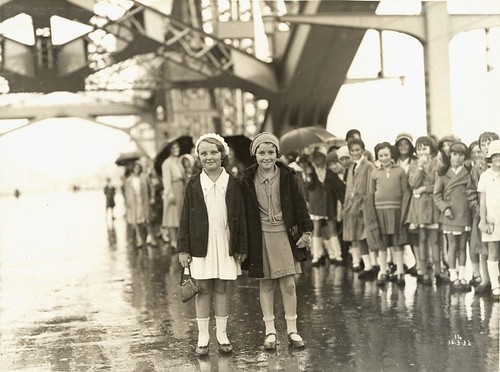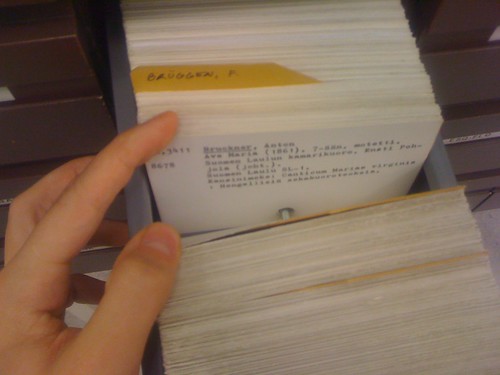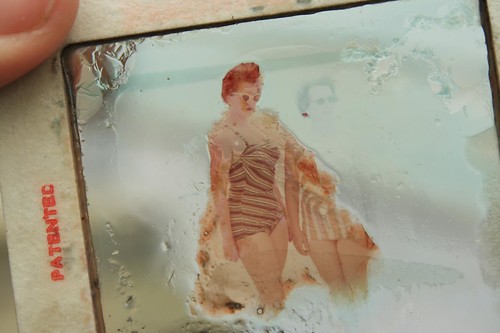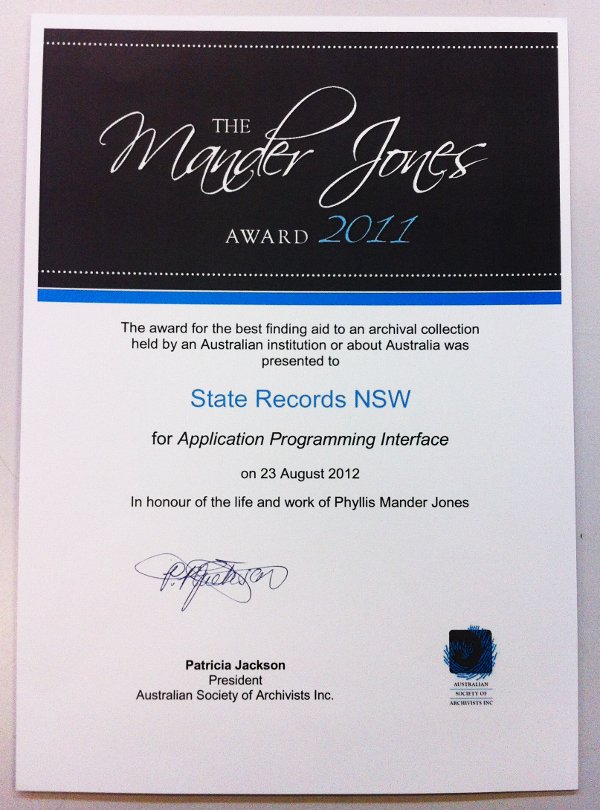Our link love for September
QueryPic Exploring digitised newspapers from Australia & New Zealand
Check out the coolest new digital history tool from @wragge.
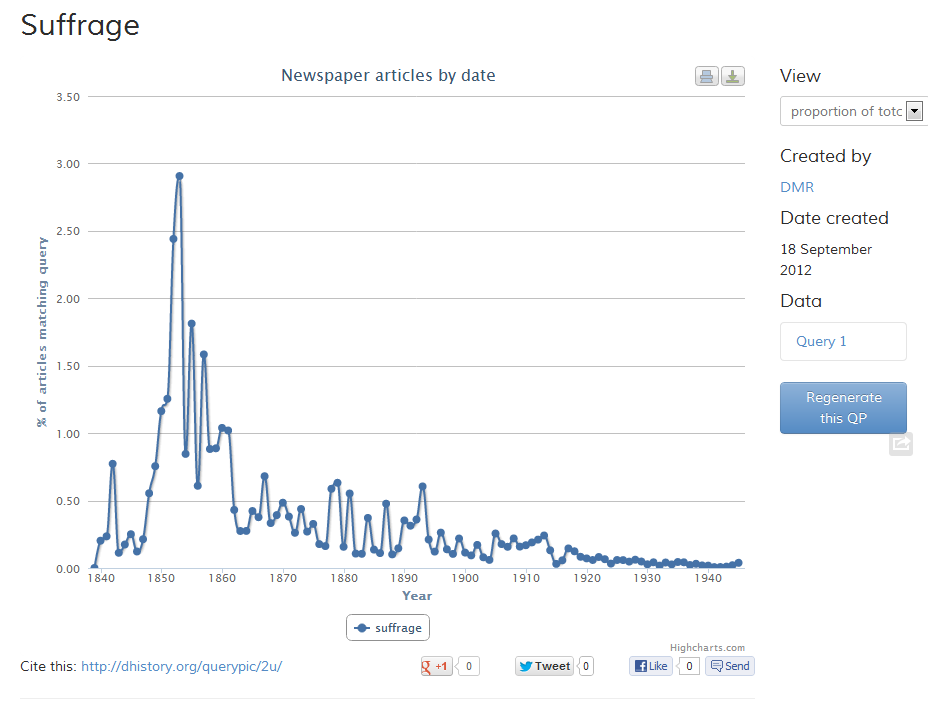
QueryPic provides a new way of seeing, searching and understanding the digitised newspapers made available by Trove and Papers Past.
Follow changes over time. Map trends and patterns. Follow a hunch. Frame a question. Explore…
To start using QueryPic visit the Home page.
To learn more about QueryPic visit the Help page.
For inspiration and possibilities check out the Explore page.

Guides to the Gallows
The archives in the Harvard Law School Library include broadsides that accompanied executions in England. The collection of broadsides at Harvard began in 1932, complementing the extensive collection of 18th and 19th century British and American trial documents.
On Nov. 30, 1824, a London banker named Henry Fauntleroy was hanged in public outside Newgate Prison, one month after being sentenced to death for embezzlement. There were 100,000 onlookers.
Many of those watching paid a penny each for a broadside printed just that morning. The single sheet describes Fauntleroy’s reaction when his appeal was denied….
…During England’s Bloody Code period, the number of crimes punishable by death escalated from 50 in 1688 to 220 by 1800. By then, a man, woman, or child could be sentenced to death for “uttering” (passing along fake documents), forgery (Fauntleroy’s crime), poaching, prostitution, insanity, petty theft, or fortune telling.
Read more at the Harvard Gazette
Bilateral Digitization at Digital Frontiers 2012
A transcript of a talk given by one of our favourite crowdsourcing bloggers Ben W. Brumfield.
……. In 2012, the democratization of digitization technology may favor informal collections over institutional ones, privileging online access over quality, completeness, preservation and professionalism.
Will the “cult of the amateur” destroy scholarly and archival standards? Will crowdsourcing unlock a vast, previously invisible archive of material scattered among the public for analysis by scholars? How can we influence the headlong rush to digitize through education and software design? This presentation will discuss the possibilities and challenges of mass digitization for amateurs, traditional scholars, libraries and archives, with a focus on handwritten documents.
View the full talk and slides at Collaborative Manuscript Transcription

Govt Wages War on paper
The decades-old pipedream of the paperless office will be within reach in three years – because taxpayers can no longer afford to put it off.
National Archives of Australia director-general David Fricker says federal government agencies are now spending about $220 million a year storing their paper records.
“And that amount is only going to grow, as more information is created,” Mr Fricker said. “Two-hundred-and-twenty-million dollars is not sustainable; it’s wasteful.”
The director-general and Arts Minister Simon Crean, who oversees the archives, toured the agency’s Mitchell repository today, where some of the government’s most important historical documents are conserved.
Advertisement
Mr Crean warned public servants they had until 2015 to shift to a digital archiving system, as the government would not allow paper files to be produced after that date.
Read the full article at The Sydney Morning Herald
Library seeks help to digitise collection
THE NATIONAL Library is seeking a partner to digitise its collection of genealogical and other material in a move that may mean the state institution puts its collections behind an online paywall.
The library has sought expressions of interest from potential commercial partners as well as the not-for-profit sector. A link-up with a commercial entity would almost certainly involve charging for online access to records, particularly genealogical records.
“We are open-minded as to who we partner with. It could be a philanthropic donor, an academic institution or a commercial business; it could be Irish or international. The core issue for us is that the partner must have the resources, funding and people and we bring the collection,” said Fiona Ross, director of the library.
Learn More at The Irish Times.

“Thank you very, very much J. Edgar Hoover”
On May 10, 1966 J. Edgar Hoover, the Director of the Federal Bureau of Investigation, wrote Alex Rosen, head of the Bureau’s General Investigation Division, thanking him for a gift certificate to a Washington, D.C. nursery. The gift was in honor of Hoover’s anniversary as director. “I shall derive much enjoyment in selecting what I want for my yard and home,” Hoover wrote.
For almost fifty years Hoover received such gifts from Bureau personnel as well as friends and admirers. Copies of various congratulatory communications to Hoover, many enclosing gifts, and his responses are contained in over thirty boxes found in Record Group 65, Records of the Federal Bureau of Investigation (Congratulatory Letters to J. Edgar Hoover, 1924-1971, Director’s Office Records and Memorabilia).
Learn more about J. Edgar Hoover and his gifts
Web Sites With a Historical Bent Join a Place to an Image
A number of photo-sharing sites are being transformed from places to look at pictures into tools to connect historical documents and give more people a sense of history.
Most sites do not yet take advantage of location-based data as a means to search, as historypin.com does. But the other collections are going to take you back in time.
Historypin.com is clearly one of the most ambitious of these sites. It is aggressively courting local historical societies to encourage them to upload their archives to the site. Already, several hundred institutions have used the site’s bulk uploading tools to add thousands of photographs.
Read the full story at the New York Times


